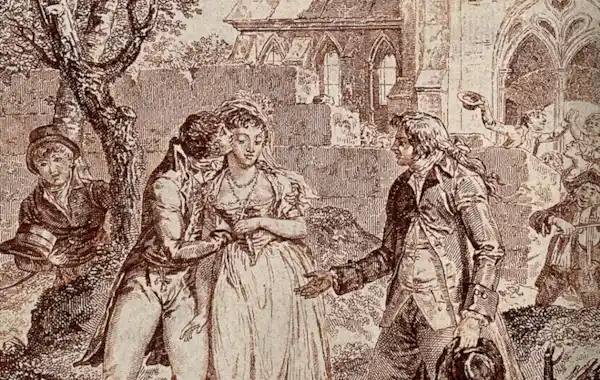25 October 2017
|
Taken your family history back to the beginning of Queen Victoria's reign? Follow your roots even further back in time with these top three websites for tracing your pre-Victorian ancestors for free!
If you’ve researched your ancestors back to the earliest available census (1841) and civil registration records (1837 in England and Wales), then you’ve reached the start of the Victorian era, when Queen Victoria came to the throne. As much fun – and perhaps fairly simple – as it’s been so far tracing your tree, this should not be the end of your family history endeavours – indeed, some might say it is just the beginning.
This is undoubtedly where your genealogy research gets a little tougher. Venturing into pre-Victorian records will certainly be frustrating at times. But we urge you to persist, because there’s so much more information about your ancestors waiting to be discovered further into the past, and it need not cost you the earth either.
The satisfactions of finding out more about the lives of earlier ancestors can be immense, and your perseverance is likely to be well-rewarded. To get you started on your family history before the Victorians, there are, in fact, many records and other useful historical material which can be searched online.
The main source of genealogical information before 1837 is that from church registers. These include the parish records of the Church of England and entries in so-called non-parochial registers produced by Protestant Nonconformist and Catholic chapels and churches.
Here are three of Ruth’s top favourite free websites to get you started on this new chapter of your research, without spending a penny.
1 FreeREG
Free internet searches of baptism, marriage and burial records, which have been extracted from parish registers, Nonconformist records and other relevant sources in the UK.
Records transcribed by volunteers and made available online for free. Follow the handy direct links from the UKBMD website.
Free site run by The Church of Jesus Christ of Latter-day Saints (also known as the Mormons).
As well as parish records, you’ll need to seek out archival sources. The National Archives and local archives/county record offices across the country house original records of many kinds going back centuries. These are where you will find official pre-Victorian records that might include information about your ancestors. These documents may relate to schools, property, land ownership, occupations, workhouses, the military, taxation, legal, religious and business matters, court and electoral records, or diaries and letters. Indexes can be searched for free on The National Archives' Discovery catalogue.
To see the records themselves, you will probably have to visit the archives in question, although more and more archival records are being made available online in digital format. If the records you need to see are available on one of the major genealogy subscription websites, don’t forget some of these can be accessed freely through computers in local archives and libraries and, of course, at The National Archives at Kew.
Other useful resources for pre-Victorian research include newspapers and periodicals, old maps, books and more. Happy ancestor-hunting!
Image: © Wellcome Library, London, copyrighted work available under Creative Commons Attribution only licence CC BY 4.0








